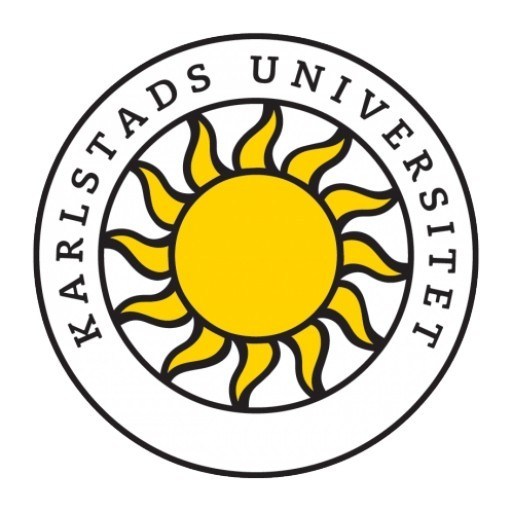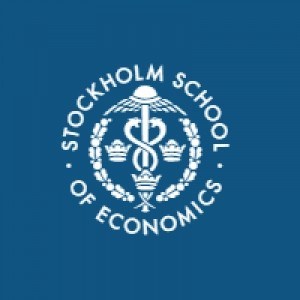Photos of university / #karlstadsuniversitet
Economics at Karlstad University offers a comprehensive and rigorous education designed to prepare students for a wide range of careers within the economic and business sectors. The programme provides a solid foundation in economic theory and empirical methods, equipping students with the analytical skills necessary to understand complex economic phenomena, both at a national and global level. Students will explore various aspects of microeconomics and macroeconomics, including market dynamics, consumer behavior, economic policy, and financial systems, enabling them to analyze economic issues critically and systematically. The curriculum combines theoretical approaches with practical applications, including case studies, data analysis, and economic modeling, fostering a deeper understanding of how economic principles are applied in real-world contexts.
Throughout the programme, students will develop key skills such as quantitative and qualitative research, strategic thinking, and effective communication. The programme emphasizes the importance of understanding current economic challenges, such as globalization, sustainability, and technological change, and encourages students to think creatively and analytically about solutions. Students are also introduced to the use of economic software and statistical tools, vital for data-driven decision-making in professional settings.
In addition to coursework, students have opportunities for internships and collaboration with industry partners, providing valuable practical experience and networking opportunities that enhance employability upon graduation. The programme prepares students for diverse career paths, including roles in government agencies, financial institutions, consulting firms, and international organizations. It also lays a strong academic foundation for those interested in pursuing further studies or research in economics or related fields.
Offered entirely in English, this programme attracts international students, fostering a multicultural learning environment. The faculty comprises experienced researchers and practitioners committed to providing high-quality education and personalized support. Graduates of the Economics programme at Karlstad University will be well-equipped with the knowledge, skills, and insights needed to contribute to economic development and to succeed in a competitive global labor market.
The Bachelor's Degree Programme in Economics at Karlstad University offers students a comprehensive education in economic theories, principles, and analysis techniques essential for understanding how markets and economies function. The program is designed to provide a solid foundation in microeconomics and macroeconomics, enabling students to analyze economic issues at both individual and societal levels. Throughout the program, students will develop critical thinking skills and the ability to apply economic models and methods to real-world challenges.
The curriculum includes core courses such as Introduction to Economics, Microeconomics, Macroeconomics, and Quantitative Methods, which build the essential skills needed for economic analysis. In addition, students have the opportunity to explore specialized areas such as international economics, environmental economics, development economics, and behavioral economics. These courses are aimed at providing a broader perspective on economic phenomena and policy issues facing modern societies.
Practical skills are emphasized through coursework that involves data collection, statistical analysis, and economic modeling, preparing students for careers in consultancy, finance, government agencies, and international organizations. The program also fosters strong analytical and communication skills, which are crucial for interpreting economic data and presenting findings convincingly.
Students are encouraged to engage in internships and project work to gain hands-on experience and to better understand the practical applications of economic theories. The program also promotes an international outlook, with opportunities for study exchanges and courses taught in English, encouraging students to think globally about economic issues.
Graduates of the program will be well-equipped to pursue further studies in economics or related fields, or to enter the workforce in roles that demand economic expertise. Upon completion, students will receive a Bachelor of Science degree in Economics, opening doors to diverse career paths in the public, private, and non-profit sectors. The programme at Karlstad University is committed to providing students with a thorough understanding of economic processes and the analytical skills necessary to contribute effectively to society and the economy.
The Bachelor's Programme in Economics at Karlstad University requires applicants to have completed their upper secondary education with a focus suitable for university studies. Proficiency in English is mandatory, with applicants expected to demonstrate their language skills through recognized tests such as IELTS or TOEFL, or equivalent. The program is designed to equip students with fundamental economic theory, quantitative methods, and analytical skills necessary for understanding complex economic phenomena. Students will engage in courses covering microeconomics, macroeconomics, econometrics, and research methods, along with practical training in data analysis and modeling. The curriculum emphasizes the development of critical thinking and problem-solving abilities, preparing graduates for careers in public administration, consultancy, banking, and international organizations, or for continued studies at the master's level. Admission may also consider relevant work experience or prior academic achievements in related fields. Students are expected to have a basic foundation in mathematics, including algebra, calculus, and statistics, to succeed in coursework. Throughout the program, students must complete mandatory coursework and participate in seminars, workshops, and project work that foster teamwork and communication skills. Assessment standards are high, and students are evaluated through written exams, assignments, presentations, and projects. The program encourages international mobility, and students have opportunities for exchange studies within the Erasmus+ framework. The completion of the program leads to a Degree of Bachelor of Science in Economics, qualifying graduates for various professional roles or further academic pursuits.
Tuition fees for the Bachelor's programme in Economics at Karlstad University vary depending on the student's nationality. For international students from countries outside the European Union (EU) and European Economic Area (EEA), the tuition fee is approximately SEK 130,000 per academic year. This fee covers the entire duration of the three-year program, totaling approximately SEK 390,000. Students are advised to budget for additional expenses such as accommodation, textbooks, study materials, insurance, and living costs. Currently, students from EU/EEA countries and Switzerland are not required to pay tuition fees thanks to Swedish government regulations supporting free education within the EU/EEA.
The university offers various scholarship opportunities aimed at supporting international students. One of the primary scholarships is the Karlstad University Scholarship, which is available for fee-paying students. This scholarship typically covers a significant portion of the tuition fee and is awarded based on academic merit. Applicants must demonstrate strong academic performance in their previous studies and submit a scholarship application alongside their programme application. The scholarship process is competitive, and funding is limited, so early application is recommended.
In addition to scholarships, students are encouraged to seek external funding sources. Many international students utilize government grants, private scholarships, or loans available in their home countries. Students should explore options such as Erasmus+ grants if they come from a country participating in the Erasmus program, which can provide financial support for studying abroad in Europe.
Living expenses in Karlstad are manageable, with estimated costs ranging from SEK 8,000 to SEK 10,000 per month. This estimate includes accommodation, food, transportation, insurance, and personal expenses. Students are advised to create a detailed budget to ensure sufficient funds throughout their studies.
Students are also encouraged to consider part-time work opportunities. Sweden has labor laws that permit international students to work up to 20 hours per week during the semester. Employment can help offset living costs and provide valuable work experience. However, students should prioritize their studies and ensure that work commitments do not interfere with their academic progress.
Lastly, students should be aware of the costs associated with health insurance and residence permits. Visa applicants from outside the EU/EEA must apply for a residence permit, which involves a fee of approximately SEK 2,000. Health insurance coverage is mandatory for non-European students and should be included in their budget.
In summary, financing a degree in Economics at Karlstad University entails planning for tuition fees, accommodation, study materials, insurance, and living expenses. Scholarships and part-time employment offer supplementary financial support, with additional funding options available through home country grants and international programs. Preparing a comprehensive financial plan is essential for a successful academic experience at Karlstad University.
The Bachelor's Programme in Economics at Karlstad University provides students with a comprehensive understanding of economic theories, principles, and applications relevant to contemporary society and the global economy. The program is designed to equip students with analytical skills, critical thinking abilities, and practical knowledge necessary for a variety of careers in the economic and business sectors. Throughout the programme, students explore key topics such as microeconomics, macroeconomics, financial markets, and economic policy, gaining insights into how economic forces influence markets, governments, and individuals. The curriculum is structured to foster both theoretical understanding and practical abilities, enabling students to analyze economic data, model economic scenarios, and evaluate policy implications effectively.
Students have the opportunity to develop strong quantitative and qualitative research skills through coursework and projects, often collaborating with peers and faculty to solve real-world economic problems. The program emphasizes the importance of sustainability and ethical considerations in economic decision-making, preparing graduates to contribute responsibly to societal development and policy analysis. In addition to classroom learning, students may engage in internships and practical training, allowing them to gain firsthand experience in economic analysis within corporate, governmental, or non-profit settings.
Karlstad University supports international exchange programs, providing students the chance to study abroad and enhance their global perspective on economics. The programme is taught predominantly in Swedish, but some courses or components may be offered in English to accommodate international students. Upon completion, graduates are well-prepared for diverse career paths, including roles in economic consultancy, public administration, banking, finance, international organizations, and research institutions. They may also choose to continue their studies at the master's level, specializing further in economics or related disciplines. Overall, the Bachelor's Programme in Economics at Karlstad University aims to foster competent, responsible, and innovative economic professionals ready to meet the challenges of modern society.









